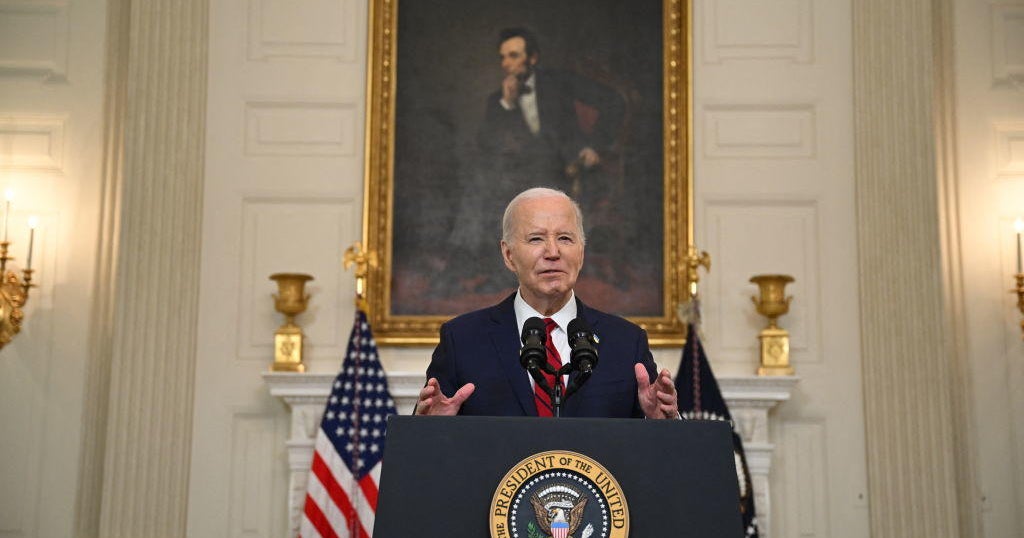IRS says it will collect hundreds of billions more in unpaid and overdue taxes, thanks to new funding
The IRS said it is poised to reap hundreds of billions of dollars of additional tax revenue by going after overdue and unpaid taxes, far beyond what was previously anticipated, thanks to funding from the Inflation Reduction Act (IRA).
The new analysis, released Tuesday by the Treasury Department and the IRS, estimates that tax revenues are expected to rise by as much as $561 billion from 2024 to 2034, thanks to stepped-up enforcement made possible with money from the Democrats' IRA, which became law in August 2022.
The estimates come as some Republican lawmakers have sought to cut IRS funding, warning that the tax agency could ramp up audits of middle-class Americans. However, IRS and Treasury officials have stated the IRS is focused on tracking down wealthy tax cheats and businesses with unpaid or overdue tax bills.
"This analysis demonstrates that President Biden's investment in rebuilding the IRS will reduce the deficit by hundreds of billions of dollars by making the wealthy and big corporations pay the taxes they owe," National Economic Adviser Lael Brainard said in a statement.
In 2022, the Congressional Budget Office estimated that the tens of billions of new IRS funding provided by the IRA would increase revenues by $180.4 billion from 2022 to 2031. The IRS now says that if IRA funding is restored, renewed and diversified, estimated revenues could reach as much as $851 billion from 2024 to 2034.
Administration officials are using the report to promote President Joe Biden's economic agenda as he campaigns for reelection — and as the IRS continually faces threats to its funding.
"Congressional Republicans' efforts to cut IRS funding show that they prioritize letting the wealthiest Americans and big corporations evade their taxes over cutting the deficit," Brainard added.
$80 billion in new IRS funding
The Inflation Reduction Act gave the IRS an $80 billion infusion of funds. However, House Republicans built a $1.4 billion reduction to the IRS into the debt ceiling and budget cuts package passed by Congress last summer. A separate agreement took an additional $20 billion from the IRS over the next two years to divert to other non-defense programs.
Since then, the agency has tried to show how it is spending the money it has left, in hopes of stemming the cuts. New customer service improvements rolled out as the tax season began Jan. 29, and earlier this month the IRS announced that it had recouped half a billion dollars in back taxes from rich tax cheats.
Ensuring that people actually pay their taxes is one of the tax collection agency's biggest challenges. The audit rate of millionaires fell by more than 70% from 2010 to 2019 and the audit rate on large corporations fell by more than 50%, Treasury's Deputy Assistant Secretary for Tax Analysis Greg Leiserson told reporters. IRA funding "is enabling the IRS to reverse this trend," Leiserson said.
The tax gap — which is the difference between taxes owed and taxes paid — has grown to more than $600 billion annually, according to the IRS.



